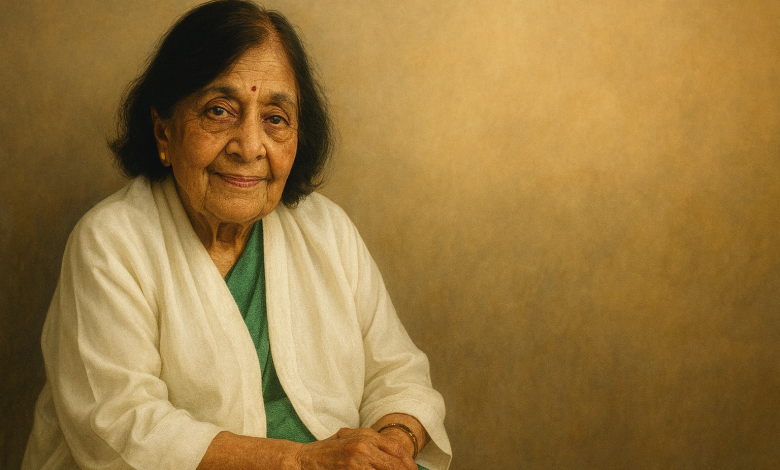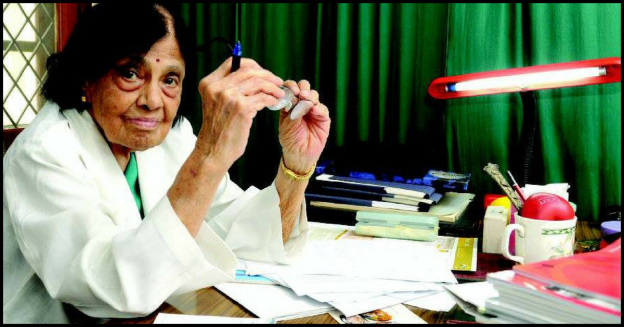The Life and Legacy of Shri Sivaramakrishna Padmavati

Sivaramakrishna Padmavati (June 20, 1917 – August 29, 2020) was a pioneering Indian cardiologist renowned for her contributions to the field of cardiac health.
She served as the director of the National Heart Institute in Delhi and was the founding president of the All India Heart Foundation.
Under her leadership, the institute partnered with the World Health Organization (WHO) to train students in preventive cardiology.
In recognition of her exceptional work, Sivaramakrishna Padmavati was awarded the Padma Vibhushan, India’s second-highest civilian honor, in 1992.
A fellow of the National Academy of Medical Sciences, she made history as India’s first female cardiologist, establishing the nation’s first cardiac clinic and cardiac catheterization lab.
Life, Career and Achievements
Padmavati was born on June 20, 1917, to a barrister in Burma (now Myanmar) and had three brothers and two sisters.
In 1942, following Japan’s invasion of Myanmar, she, along with her mother and sisters, was compelled to flee to Coimbatore in Tamil Nadu, India, leaving their male relatives behind.
She had earned her MBBS degree from Rangoon Medical College. She moved to London in 1949, where she received her FRCP from the Royal College of Physicians.
Over the years, she worked and trained at renowned institutions such as the National Heart Hospital, National Chest Hospital, the National Hospital for Neurology and Neurosurgery, Johns Hopkins Hospital and Harvard Medical School.
Returning to India in 1953, she began her career as a lecturer at Lady Hardinge Medical College, Delhi, where she established a cardiology clinic.
By 1954, she was one of the first female cardiologists in the country. As an examiner with the Medical Council of India, she played a key role in starting India’s first Doctorate of Medicine (DM) program in cardiology.
In 1962, she co-founded the All India Heart Foundation (AIHF) along with a group of physicians and industrialist Ashok Jain of Bennett, Coleman & Co. Ltd.
In 1967, she joined Maulana Azad Medical College, Delhi, and was honored with the Padma Bhushan by the Government of India that same year.
She also established one of the country’s earliest cardiology departments at G.B. Pant Hospital (link to gb pant hospital page), which is part of the college campus.
Notably, she served as Secretary General of the 5th World Congress of Cardiology, held in New Delhi in 1966.
During the 1970s, she held leadership roles at three major institutions simultaneously—Maulana Azad Medical College, Lok Nayak Hospital, and G.B. Pant Hospital.
She retired in 1978 as the Director (Principal) of Maulana Azad Medical College.
After retirement, in 1981, she founded the National Heart Institute (NHI) in South Delhi, which expanded over the years to offer tertiary patient care, research, and community outreach.
She continued to contribute actively to the institute. She also served as Emeritus Professor of Medicine and Cardiology at the University of Delhi.
At the age of 90, in 2007, she became a fellow of the European Society of Cardiology (ESC), making her the most senior fellow in the organization’s history.
At 103, she was India’s oldest living doctor, a testament to her lifelong dedication to medicine. Her death on 29 August 2020 marked the loss of a pioneering figure in cardiology.
